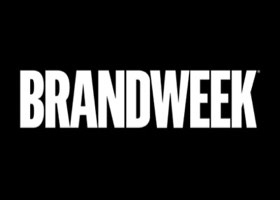The Tracker: Beware Big Numbers in Product Placement
Last month PQ Media, a well-known media research firm in Stamford, Conn., published its new estimate of the total value of product placement in TV and film: $5.7 billion in 2006.
That number is an increase over its estimate of the value of product placement in 2005, which was $4.48 billion.
PQM’s 2005 number is itself a revision upward: in June 2005 the company estimated that year’s value would be just $4.24 billion.
To give you an idea of how quickly these estimates are spiraling, they are fast approaching the $9.1 billion spent in the annual TV upfront.
Can the appearance of all those brands on CBS’s Survivor and Fox’s American Idol really be approaching the value of all advertising bought on network TV in advance of the fall season?
Other numbers tell a different story. Nielsen Product Placement recently released figures for 2006 that show the number of placements is actually decreasing on network TV, to 20,857 hits per quarter. At its peak, in the first quarter of 2005, network TV in prime time was blasting viewers with 27,548 brand views. (To see a chart of this breakdown, click HERE.)
Which raises an obvious question: How can the value of product placement be going up by 21% when the amount of it (on TV’s most expensive real estate, at least) has dropped by 24%?
At one level the question answers itself: if the most valuable inventory is decreasing then its price is likely to be increasing. That’s how supply and demand works. The Super Bowl has the same problem: It is the most valuable ad medium in the U.S. and yet, despite an historically declining audience, it continues to command increasing prices for 30-second spots, now north of $2 million.
That, however, seems unlikely to be the case with product placement, because in-show placements are increasingly bought as package deals alongside regular 30-second ad units, and the amount spent on those ad units has remained relatively steady.
This isn’t just an issue of confusing statistics. PQM’s numbers are widely quoted in the media. But some in the branded entertainment industry suspect PQM’s $5.7 billion figure may be wrong.
“When I see a number like that it makes me angry,” said Tom Meyer, president of branded entertainment agency Davie Brown Entertainment in Los Angeles. “It portrays the product placement arena as being a $5 billion treasure chest that the networks just have to figure out how to monetize and then that money is absolutely real. It’s just not the case.”
DBE represents Pepsi, Hewlett-Packard and AT&T; among others in the product placement business. During a recent interview with Brandweek, Meyer used his clients’ budgets as a guide to estimating what is actually being spent in the industry.
“If you take the numbers we put up and multiply that by the number of brands playing in the space, I don’t have any idea how you get to a number that large,” he said. “You’re not even going to come close to that number.
Michael Nyman of Bragman Nyman Cafarelli in Los Angeles, whose clients include T-Mobile and Kellogg, agrees. He believes the PQM estimate is “way out of line.”
And Norm Marshall of NMA in Sun Valley, Calif., has previously gone on record with his doubts about the PQM estimates in 2005.
PQM’s response is that some qualifications need to be borne in mind when reading their numbers.
First, their total figure is an estimate of equivalent value, not an estimate of money actually spent, PQM said. As a large volume of deals occur for free or as add-ons to existing ad buys, brands can get product placement hits without actually spending extra money.
However, PQM said, the proportion of paid deals is actually increasing. In 2004 it was about 29%, PQM estimated. It has no current estimate of the paid portion beyond that, the company said.
Patrick Quinn, president of the firm added in a recent interview, “the increase comes from more-than-expected paid placements [and] the value has increased.”
Secondly, the firm said, the $5.7 billion number includes TV, cable, film and certain Internet programming. Confusingly, it does not include Webisodes or advergaming.
PQM concedes that placements are not increasing. “While the number of placements may be flat, the number of paid placements is certainly going up and in particular single-sponsor placements by major brands is going up and they’re paying a lot more dollars for those particular items,” Quinn said.
PQM might well also point to cable, where brands show up at five times the rate of network TV. There were 105,588 hits in the second quarter of 2006 on cable TV, according to Nielsen Product Placement.
The company has a more detailed report scheduled for publication on Aug. 1, it said.
The problem that PQM will always face is that, unlike Nielsen Media Research, which tracks ads, or Information Resources Inc., which tracks sales, no one tracks product placement deal-by-deal. So every number is by definition an estimate.
How to arrive at that estimate is in itself a matter of dispute. For instance, Jeff Greenfield, evp at 1st Approach/Hollywood Product Placement in Boston, feels that a placement is more valuable than a commercial because when an actor holds a prop in a show there’s an implied celebrity endorsement. Yet even Greenfield, whose clients include El Jimador Tequila and Black & Decker believes the PQM number is “way off.”
In contrast, DBE’s Meyer reckons a placement is less valuable because, “It doesn’t speak to you. It can’t say anything about the value of the brand” even in a full-blown integration.
There is one aspect of this debate that PQM and its critics all agree on. The TV networks have done a much better job in the last year or so of policing their programming. Less stuff is sneaking its way into scenes for free, and the nets are channeling more structured deals through their sales and compliance departments.
That is a significant victory for the networks, who at one time were being written off by some as mere suppliers of undifferentiated media that streetwise brands need no longer deal with.
For example, in June 2005, Joe Jaffe, a Westport, Conn., marketing consultant, told Brandweek, “The nets are becoming nothing more than a vessel to transport their content.”
If, as the branded entertainment agencies claim, the networks have finally wrestled control of product placement from agencies and producers, then Jaffe’s prediction may have been premature.
Increased network control would certainly explain why branded prop-shots are currently in decline despite the increased budgets that agencies and PQM claim are available for branded entertainment.

